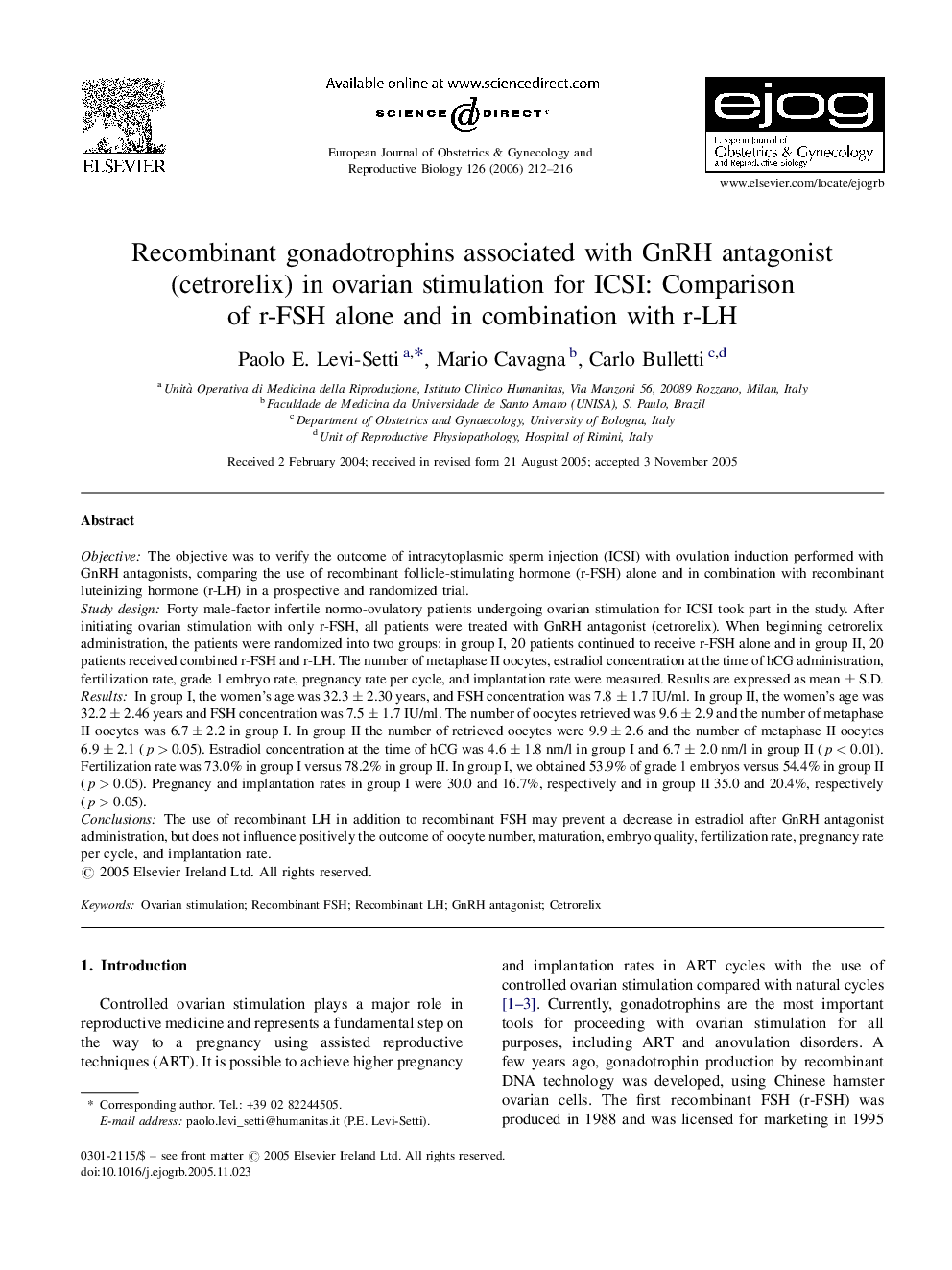| Article ID | Journal | Published Year | Pages | File Type |
|---|---|---|---|---|
| 3922175 | European Journal of Obstetrics & Gynecology and Reproductive Biology | 2006 | 5 Pages |
ObjectiveThe objective was to verify the outcome of intracytoplasmic sperm injection (ICSI) with ovulation induction performed with GnRH antagonists, comparing the use of recombinant follicle-stimulating hormone (r-FSH) alone and in combination with recombinant luteinizing hormone (r-LH) in a prospective and randomized trial.Study designForty male-factor infertile normo-ovulatory patients undergoing ovarian stimulation for ICSI took part in the study. After initiating ovarian stimulation with only r-FSH, all patients were treated with GnRH antagonist (cetrorelix). When beginning cetrorelix administration, the patients were randomized into two groups: in group I, 20 patients continued to receive r-FSH alone and in group II, 20 patients received combined r-FSH and r-LH. The number of metaphase II oocytes, estradiol concentration at the time of hCG administration, fertilization rate, grade 1 embryo rate, pregnancy rate per cycle, and implantation rate were measured. Results are expressed as mean ± S.D.ResultsIn group I, the women's age was 32.3 ± 2.30 years, and FSH concentration was 7.8 ± 1.7 IU/ml. In group II, the women's age was 32.2 ± 2.46 years and FSH concentration was 7.5 ± 1.7 IU/ml. The number of oocytes retrieved was 9.6 ± 2.9 and the number of metaphase II oocytes was 6.7 ± 2.2 in group I. In group II the number of retrieved oocytes were 9.9 ± 2.6 and the number of metaphase II oocytes 6.9 ± 2.1 (p > 0.05). Estradiol concentration at the time of hCG was 4.6 ± 1.8 nm/l in group I and 6.7 ± 2.0 nm/l in group II (p < 0.01). Fertilization rate was 73.0% in group I versus 78.2% in group II. In group I, we obtained 53.9% of grade 1 embryos versus 54.4% in group II (p > 0.05). Pregnancy and implantation rates in group I were 30.0 and 16.7%, respectively and in group II 35.0 and 20.4%, respectively (p > 0.05).ConclusionsThe use of recombinant LH in addition to recombinant FSH may prevent a decrease in estradiol after GnRH antagonist administration, but does not influence positively the outcome of oocyte number, maturation, embryo quality, fertilization rate, pregnancy rate per cycle, and implantation rate.
